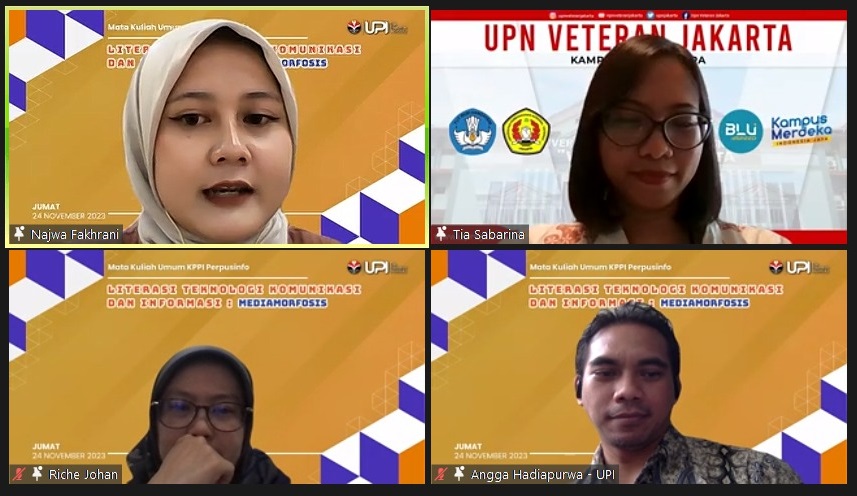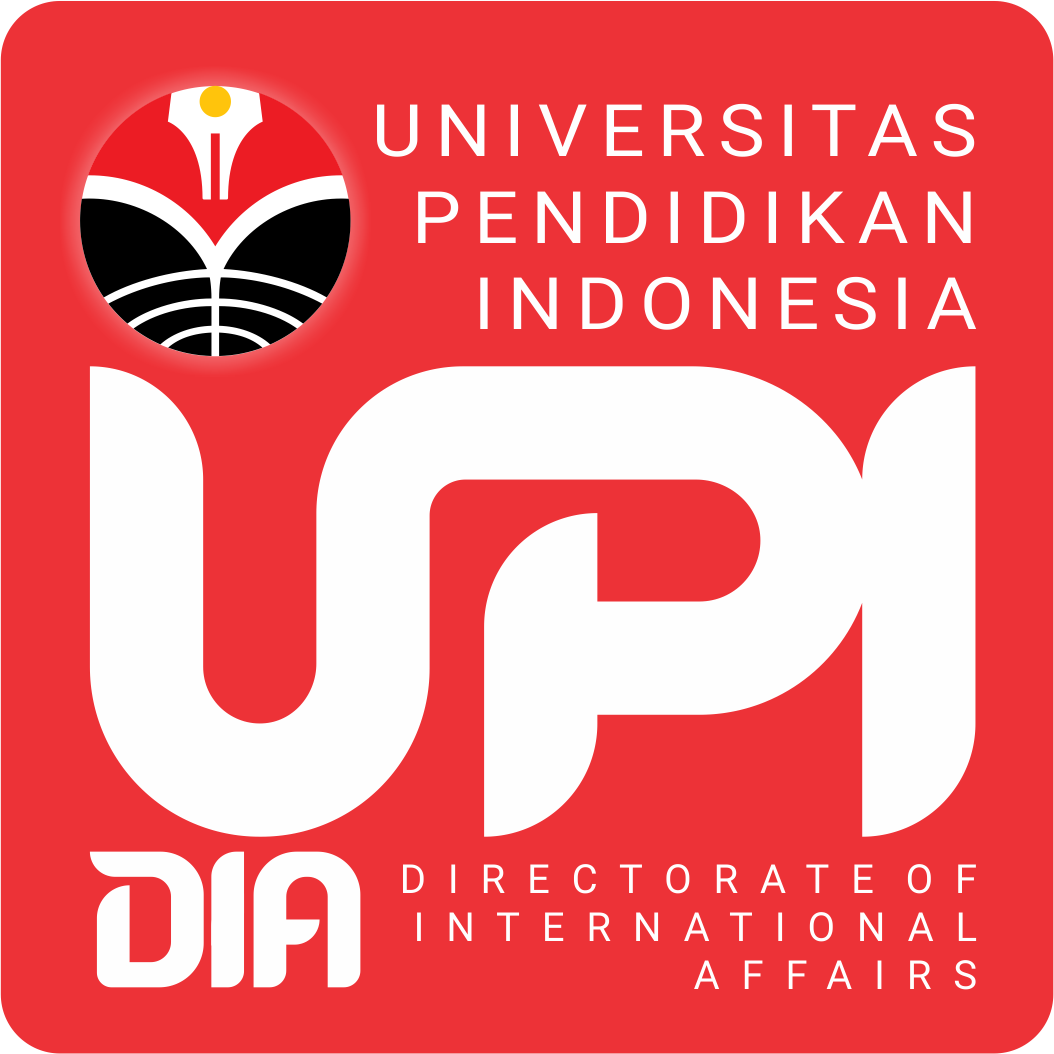
Bandung – The Library and Information Science Program of the Faculty of Education at Universitas Pendidikan Indonesia (UPI) hosted another session of its lecture series. In a slightly different approach, this fourth session featured not a practitioner but a lecturer from a renowned university. The lecture, titled “Mediamorphosis: Communication and Information Technology Literacy,” took place successfully on Friday, November 24, 2023, through a Zoom meeting room, focusing on the role of information and communication technology (ICT) in libraries.
For this session, the Library and Information Science Program at UPI invited Mrs. Gustiana Sabarina, S.Pd., M.I.Kom., a lecturer from the Information Science Program at UPN Veteran Jakarta, as the speaker. Mrs. Gustiana, an alumna of the Library and Information Science Program at UPI, currently works as a lecturer in the Information Science Program at FISIP UPN Veteran Jakarta. Throughout her career as an educator, she has conducted numerous research projects since 2018. Her most recent research in 2023 is titled “Digital Marketing Communication of Situ Bolang Tourist Objects, Jatisura Indramayu.” With a wealth of publication articles in her career, Mrs. Gustiana Sabarina earned the internationally recognized Certified International Qualitative Researcher (CIQaR) certificate in 2022, and most recently, she obtained the Assessor of Competency BNSP certificate in 2023. Leveraging her experiences, the Library and Information Science Program at UPI invited her as the speaker for this fourth lecture series.
The event was opened by the host, Abi Rafdi Hadyanto, at 3:30 PM, and then proceeded to the lecture session moderated by Najwa Fakhrani. Both are seventh-semester students of the Library and Information Science Program at UPI assigned as organizers for this fourth session of the lecture series. The welcoming remarks were delivered by Dr. Riche Cynthia Johan, M.Si., the lecturer for the Study of Library and Information Science, along with Mr. Angga Hadiapurwa, M.I.Kom., as part of the teaching team. Dr. Riche expressed her appreciation for the speaker’s willingness to share knowledge and expressed hope for collaboration between the two universities. “I would like to express my gratitude to Mrs. Gustiana Sabarina for sharing her expertise in this lecture series. Hopefully, what she will convey will be an additional learning experience for our students in the Library and Information Science Program. I also hope that in the future, we can collaborate and work together, both among the teaching teams and students from the Library and Information Science Program at UPI with the teaching team or students from the Information Science Program at UPN Veteran Jakarta.”
Mrs. Gustiana Sabarina began the lecture by introducing the concept of “mediamorphosis,” likening it to the concept of metamorphosis in the life cycle of animals. “Have you ever heard the word ‘metamorphosis’? How about ‘mediamorphosis’? Actually, conceptually and linguistically, they are quite similar, both indicating transformation or change. The difference lies in the fact that ‘metamorphosis’ is commonly used in the animal world, while ‘mediamorphosis’ is used in the realm of information,” said Mrs. Gustiana with enthusiasm. She went on to explain the history of the term “mediamorphosis,” which has been conceptualized since the statement by Roger Fidler in 1990. “The term ‘mediamorphosis’ has actually been conceptualized for a long time, as stated by Roger Fidler in 1990, predicting the development of information and the transformation of communication media due to innovation and technology. Through this statement, it is clear that the concept of ‘mediamorphosis’ has been around for decades,” explained Mrs. Gustiana.
In addition to discussing the concept and history of mediamorphosis, Mrs. Gustiana also presented the six fundamental principles of mediamorphosis. “In addition to the explained concept, ‘mediamorphosis’ has six fundamental principles, including coevolution and coexistence, metamorphosis, inheritance, survival capability, opportunity-seeking ability, and adaptability. These six fundamental principles allow all forms of media to exist in a dynamic and interconnected world, creating the essence of ‘mediamorphosis,'” explained Mrs. Gustiana. In the final part of the lecture, Mrs. Gustiana discussed the transformation of digital society. According to her, the digital transformation of society has both positive and negative impacts. “As technology advances, it will bring about many changes in the societal order, especially in terms of information retrieval. The positive impact will be the ease of information retrieval, where people can access information quickly through gadgets or digitally due to the abundance of information. However, it is also possible that the growth of existing technology will create issues related to digital literacy,” Mrs. Gustiana explained. The session continued with a discussion and Q&A session, where Mrs. Gustiana also provided tips and tricks for pursuing relevant educational paths in the field of library science, receiving a friendly response from the Study of Library and Information Science.
This fourth session of the lecture series focused on issues of literacy and information transformation in the digital age, providing new insights and understanding for participants about mediamorphosis, especially its relevance to the world of libraries. The in-depth exploration of mediamorphosis by Mrs. Gustiana Sabarina as the speaker was considered to enhance awareness and thoughts related to information transformation and technological development. The fourth lecture series concluded with the presentation of a certificate of appreciation to the speaker and closing remarks by Abi Rafdi as the host. The organizers hope that the lecture series, addressing interesting topics and issues in library science, will further enhance the understanding and competence of students in the Library and Information Science Program at UPI.
